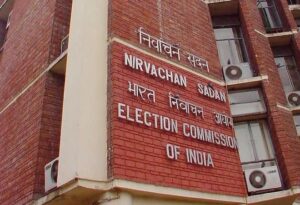Draconian, Unconstitutional: Oppn Slams Modi Govt Over New Bill

The Bill was introduced in Parliament by Home Minister Amit Shah
The Opposition, led by the Congress party, has launched a scathing attack on the Modi government over the Constitution (One Hundred and Thirtieth Amendment) Bill, 2025, labeling it as “draconian, diversionary, and unconstitutional.” The Bill, introduced by Home Minister Amit Shah, proposes that the prime minister or any union or state minister facing corruption or other serious criminal charges can be removed from office if they are arrested or detained for more than 30 days. This provision has sparked widespread criticism, with the Opposition arguing that it grants sweeping powers to the Centre to destabilize opposition-led governments.
Congress General Secretary (Organisation) K.C. Venugopal was quick to condemn the Bill, accusing Shah of hypocrisy. “BJP leaders claim this Bill will bring morality into politics. I want to ask the home minister: When he was facing arrest as Gujarat’s home minister, did he resign on moral grounds?” Venugopal questioned. He further stated that the Bill is “clearly designed to target Opposition-ruled states.”
Shah, however, claimed that he had stepped down before his arrest on ethical grounds and did not return until his name was cleared. Nevertheless, historical records reveal that Shah had indeed been accused when he resigned and was only not yet under arrest because he had gone underground, reportedly due to a lack of trust in the Central Bureau of Investigation (CBI).
Priyanka Gandhi Vadra, a prominent Congress leader, echoed Venugopal’s sentiments, describing the Centre’s proposal as “completely draconian.” She argued, “To say it is an anti-corruption measure is just to pull a veil across the eyes of the people. Tomorrow, you can put any kind of a case on a chief minister, have him arrested for 30 days without conviction, and he ceases to be a chief minister. It is absolutely wrong, anti-constitutional, undemocratic, and very unfortunate.”
Congress MP Manish Tewari warned that the legislation “opens the door to political misuse by state agencies whose arbitrary conduct has repeatedly been flagged by the Supreme Court,” and added that it “tears apart existing constitutional safeguards.”
The Trinamool Congress’ Mahua Moitra took the critique further, labeling the move a “super-Emergency.” This sentiment was echoed by West Bengal Chief Minister Mamata Banerjee and fellow Trinamool legislator Sagarika Ghose. Moitra stated, “This bypasses the judiciary — no trial, no conviction, yet ministers can be sacked. It is extremely dangerous. The BJP wants power without accountability.” She expressed concern that weaponized agencies like the Enforcement Directorate (ED) and CBI could be used to topple elected governments under this law.
AIMIM chief Asaduddin Owaisi said the Bill violated “federalism, due process, separation of powers, and the people’s right to an elected government.” He also signaled opposition to two related constitutional amendments.
Veteran journalist Sheela Bhatt questioned both the timing and intent of the Bill, stating, “Why introduce such a provocative amendment now? Perhaps it is symbolic — to project toughness on corruption, even covering the Prime Minister’s office. But disqualifying chief ministers after 30 days in custody is a radical step that could spark a backlash stronger than the farm bills.”
Wire journalist M.K. Venu described the Bill as a political smokescreen, writing, “This is just a ploy to distract from ‘Vote Chori’ and the Bihar SIR scam. It’s the standard playbook of a regime when cornered. Expect more such distractions in the weeks ahead.”
The battle over the amendment is expected to be fierce, with the government requiring a two-thirds majority in both Houses to pass the Bill. However, political analysts believe that the NDA government does not have the numbers in either House to push through a Constitutional Amendment Bill easily. As one commentator noted, “Forget the Rajya Sabha, the Modi government doesn’t even command a two-thirds majority in the Lok Sabha. The Bill — as an attempt to target Opposition governments and override the Representation of the People’s Act, 1951 — appears more like a political pipe dream than a realistic possibility at this stage.”





